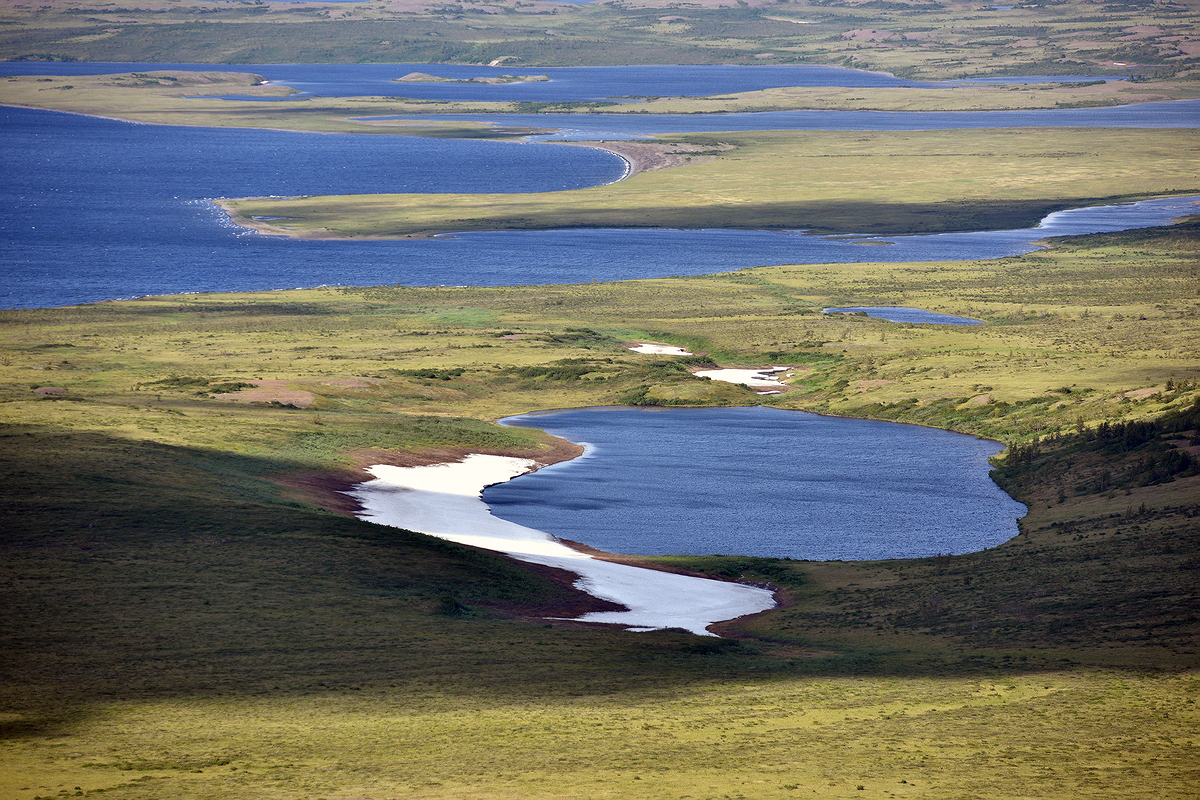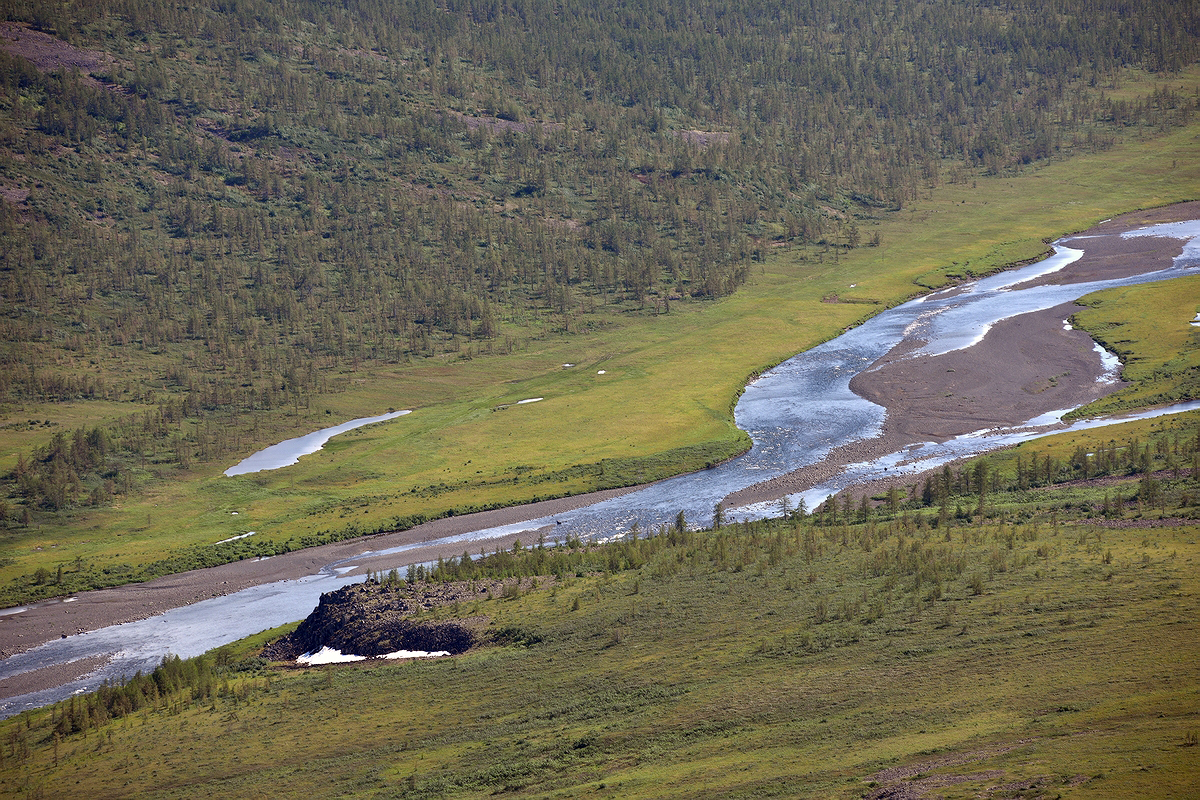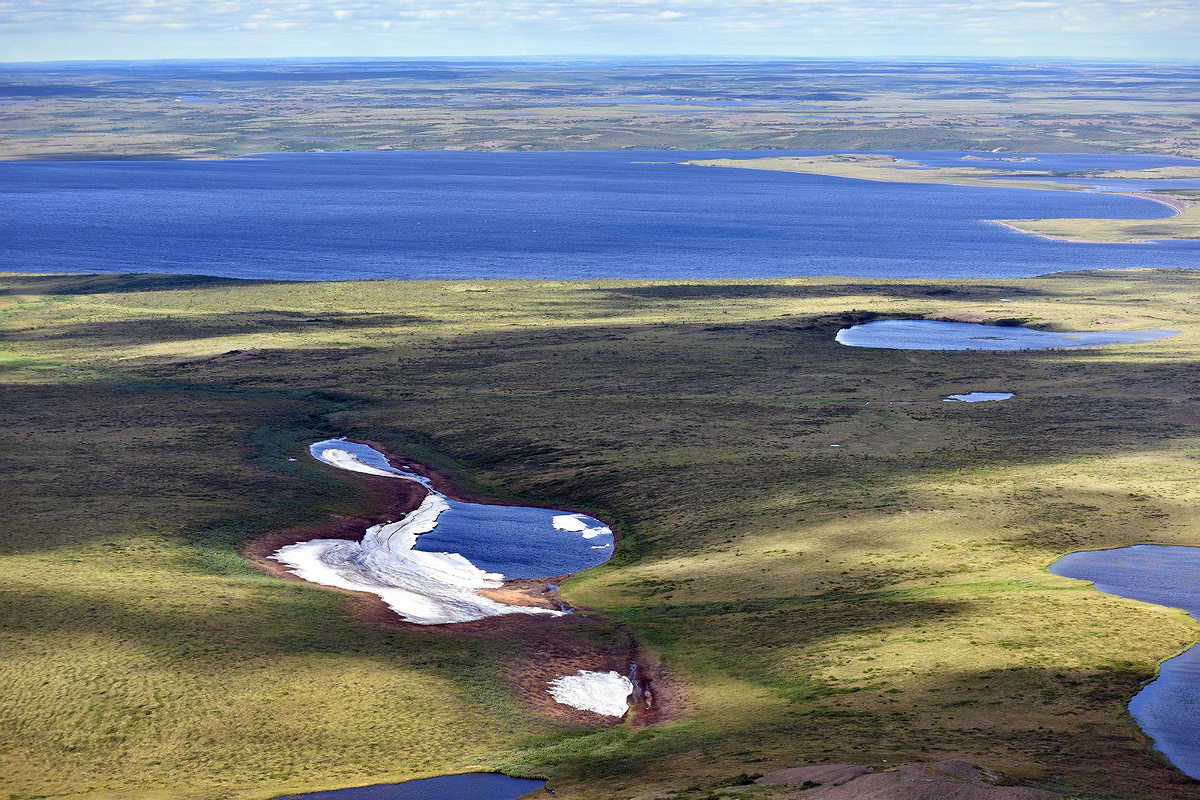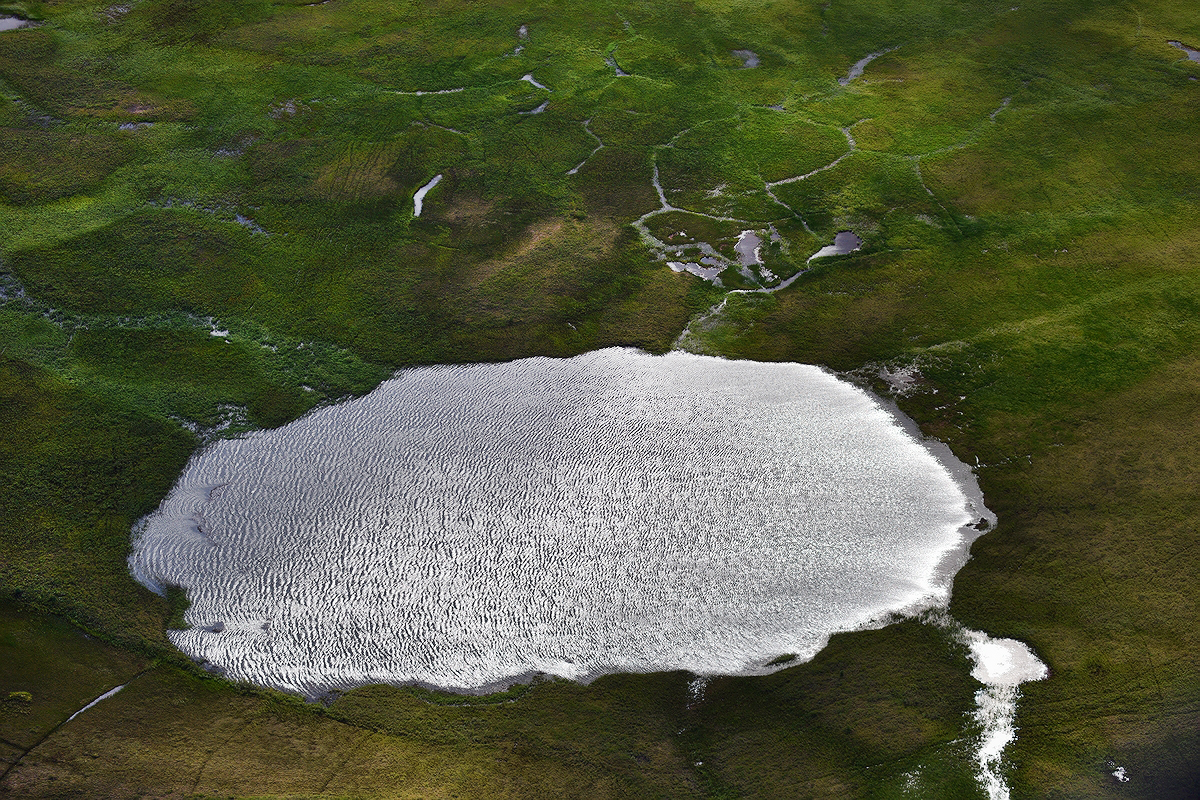ARCTIC. #SIBERIA. THIS IS TAIMYR. During the new scientific work, a team of scientists has identified a new consequence of climate change: Arctic lakes rapidly lose water, according to Nature Climate Change.
The Florida University Specialists analyze how Arctic water bodies have changed over the past 20 years. The results show that they dry up or shrink throughout the Panarctic, a region that includes northern parts of Canada, Russia, Greenland, Scandinavia and Alaska.
Lakes play a key role in Arctic ecosystems. They are a source of drinking water for indigenous peoples, and local animals and migratory birds also depend on the reservoirs.
Initially, scientists thought that warming would lead to an increase in the area of lakes. They believed that the volume of water in them would increase due to the ground ice melting. But in fact, the reverse process occurs.
The study authors concluded that the reason for the lakes disappearance was, oddly enough, the increase in autumn precipitation. Rainwater brings warmth to the soil and accelerates the permafrost melting. This contributes to the new drainage channels emergence and increases erosion in the soil, which in turn reduces the amount of water in the lakes.
The study authors believe that an effective way to stop the permafrost melting and save the Arctic lakes is to stop greenhouse gas emissions.
Previously, scientists found that due to warming in the Arctic, the red king crab habitat increased. Russian researchers suggest that the melting of the Arctic is accelerating a previously unknown current. This Is Taimyr also told about how polar bears learn to survive in warmer conditions.
Follow us on Telegram, VKontakte.
Text: Ekaterina Maksimova, Photo: Nikolay Shchipko







